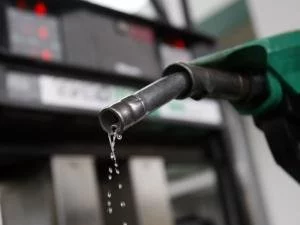
Petrol, as a vital commodity in Nigeria, plays a pivotal role in powering various sectors of the economy and sustaining daily life activities. However, its price fluctuates due to a myriad of factors, impacting consumers nationwide....READ FULL ARTICLE
In this article, we delve into the current petrol prices in Nigeria, the underlying factors influencing these prices, and address common queries regarding this crucial aspect of the Nigerian economy.
Current Price of Petrol in Nigeria:
As per the Nigerian National Petroleum Company Limited (NNPCL), the official pump price of petrol (PMS) in Nigeria stands at ₦557 per litre.
This figure reflects the aftermath of the government’s decision to remove subsidies on petrol, resulting in a substantial increase from the previous price of N195 per litre. Nevertheless, actual petrol prices may vary across regions due to logistical disparities.
Factors Affecting Petrol Prices in Nigeria:
1. Global Oil Prices: Nigeria, being a significant oil producer, is heavily influenced by global oil market trends. Fluctuations in international crude oil prices directly impact the domestic petrol prices.
2. Exchange Rates: The exchange rate between the Nigerian Naira and major foreign currencies, particularly the US Dollar, affects the cost of importing refined petroleum products.
3. Subsidy Policies: Government subsidies or lack thereof play a pivotal role in determining petrol prices. Subsidy removal often leads to price hikes, while subsidy reinstatement can temporarily stabilize or reduce prices.
4. Supply and Demand Dynamics: Like any commodity, petrol prices are influenced by supply and demand dynamics within the domestic market. Factors such as production levels, distribution efficiency, and consumer demand contribute to price variations.
State-wise Petrol Prices in Nigeria (as of May 4, 2024):
– Lagos: ₦488
– Ogun: ₦500
– Oyo: ₦500
– Osun: ₦500
– Ondo: ₦500
– Ekiti: ₦500
– Kwara: ₦515
– Abia: ₦515
– Imo: ₦515
– Akwa Ibom: ₦515
– Bayelsa: ₦515
– Rivers: ₦511
– Cross River: ₦511
– Edo: ₦511
– Delta: ₦511
– Ebonyi: ₦520
– Anambra: ₦520
– Enugu: ₦520
– Abuja: ₦537
– Plateau: ₦537
– Nasarawa: ₦537
– Kogi: ₦537
– Benue: ₦537
– Niger: ₦537
– Sokoto: ₦540
– Katsina: ₦540
– Kaduna: ₦540
– Kano: ₦540
– Jigawa: ₦540
– Zamfara: ₦540
– Kebbi: ₦545
– Adamawa: ₦550
– Bauchi: ₦550
– Taraba: ₦550
– Gombe: ₦550
– Borno: ₦557
– Yobe: ₦557
Understanding the dynamics of petrol prices in Nigeria is crucial for consumers, policymakers, and stakeholders across various sectors. While the official pump price serves as a benchmark, regional disparities and external factors necessitate vigilance and adaptability.
Moving forward, proactive measures in policy formulation, market regulation, and investment in alternative energy sources can mitigate the volatility and ensure a sustainable energy future for Nigeria.…READ FULL ARTICLE

Be the first to comment